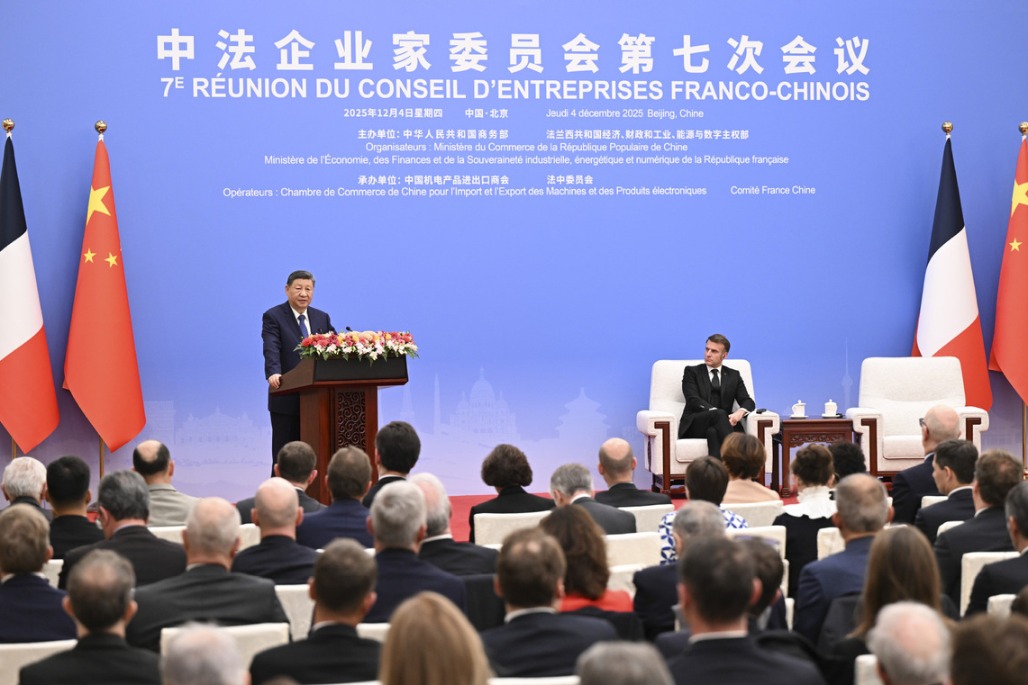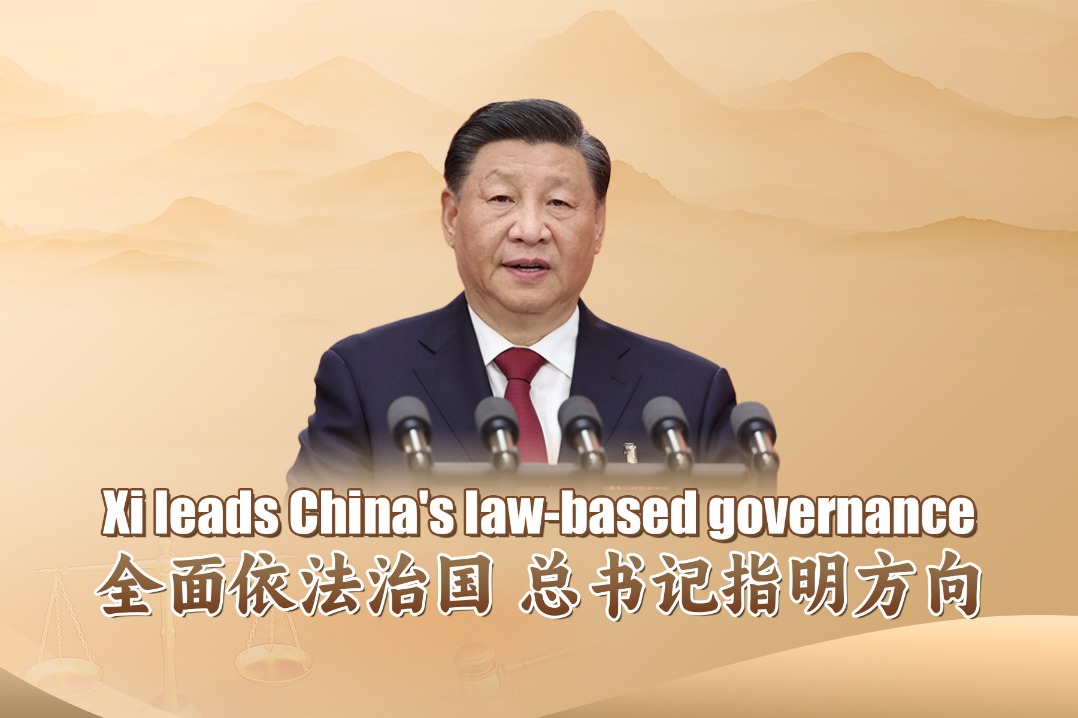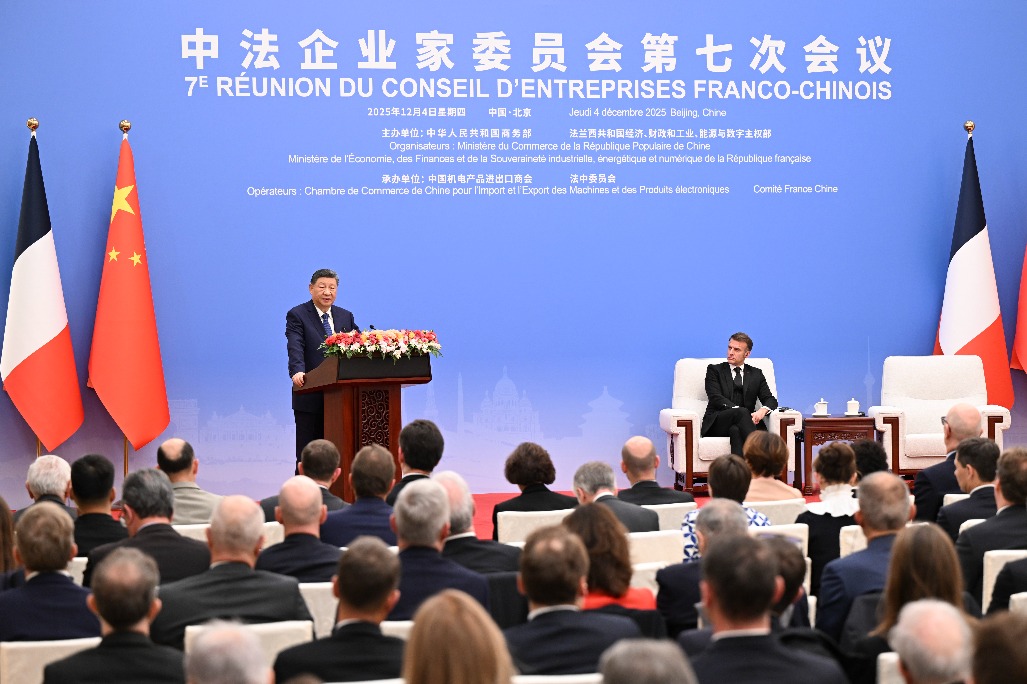Unbelievable hypocrisy seen in Five Eyes statement
By Tom Fowdy | China Daily Global | Updated: 2023-06-14 09:18
The Five Eyes nations — Australia, Canada, New Zealand, the United Kingdom and the United States — as well as Japan, in their "Joint Declaration Against Trade-Related Economic Coercion and Non-Market Policies and Practices" issued on June 9, did not name any specific country, but it was obvious that the target was China.
The statement slashed what it described as "trade-related economic coercion" and nonmarket policies and practices "that undermine the functioning of and confidence in the rules-based multilateral trading system by distorting trade, investment and competition and harming relations between countries". It also referred to "the threat of measures affecting trade and investment in an abusive, arbitrary, or pretextual manner to pressure, induce or influence a foreign government into taking, or not taking, a decision or action in order to achieve a strategic political or policy objective, or prevent or interfere with the foreign government's exercise of its legitimate sovereign rights or choices".
The statement then went on to say that such actions affect the "livelihoods of our citizens, harm our workers and businesses, and could undermine global security and stability".
It goes without saying that the level of hypocrisy and the double standards manifest in this statement are unbelievable.
The statement appeared to be a follow-up to what the US wanted to include, but was unable to, in the statement of a recent meeting of the Group of Seven developed nations, because its European affiliates, France, Germany and Italy, have a slightly softer disposition on China. Thus, it resorted to the cohort of its most loyal allies, the Five Eyes as well as Japan, to push it through.
It is staggering that they can say this with a straight face, let alone expect others to take it seriously, manifesting one rule for themselves and another for everyone else.
First of all, who is distorting trade and investment, which harms relations between countries? Was it China taking small and targeted action against a US chip company, or the US blacklisting a slew of Chinese technology companies on its Commerce Department entity list? Or was it the US subjugation of the entirety of China's semiconductor industry to the foreign direct product rule, and then its pressuring of Japan and the Netherlands to follow suit?
Or was it when the US used the pretext of national security to force allies to blacklist Huawei from their 5G networks, or when it used the opportunistic accusation of "forced labor" in an effort to push China out of the solar panel and renewable energy supply chains? Or was it the forcing of countries to cancel certain Chinese investments in their national infrastructure?
Perhaps it is the 60-year-long embargo against Cuba, or the flouting of the United Nations-backed Iran deal to place crippling unilateral sanctions on the country. Or maybe it was the imposition of measures that sent Venezuela and Syria into a humanitarian crisis by indirectly blocking every means of transaction to do business with the country.
The list is endless. But what about the so-called "sovereign rights or choices" of such states? Does that include the threats directed at countries such as the Solomon Islands for seeking security cooperation with China? Or does it respect China's sovereign rights with respect to the Taiwan question or the Hong Kong Special Administrative Region, among others?
Can the US ever say that it has not used punitive measures to undermine or influence the sovereignty of other countries with respect to its geopolitical goals?
The reality is that there is no other country that has used "economic coercion" on a grander scale than the US, which has stopped at nothing in efforts to economically cripple its opponents in the name of upholding its own hegemony.
In talking about a so-called "rules-based order", the US effectively reserves the right to do what it wants to other countries, but another power should not dare to defend its own interests.
The recent joint statement shows that the US does not fundamentally respect China as an equal, but expects it to be a "rule taker" and not a "rule maker "whose development must be conditional to the economic hegemony and dominance of the US.
Washington apparently believes that Beijing should not have the right to use its hard-won economic development to defend its national interests when necessary, even though China merely asks that its core interests be respected.
As such, the statement by the Five Eyes and Japan undoubtedly goes down as one of the most hypocritical efforts of all time, if not the most.
The views do not necessarily reflect those of China Daily.
The author is a British political and international relations analyst.
























